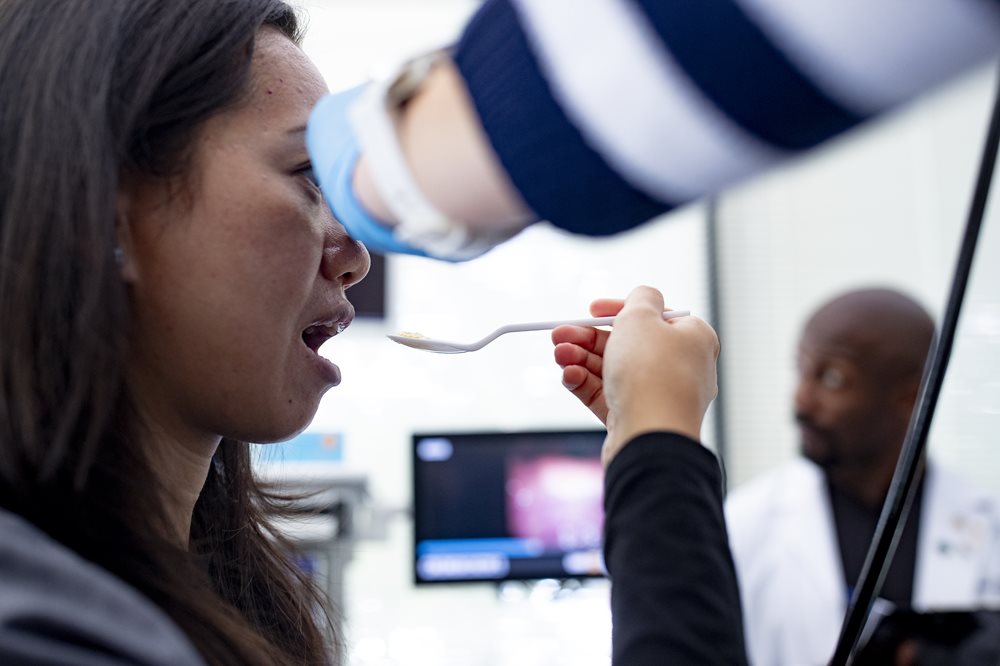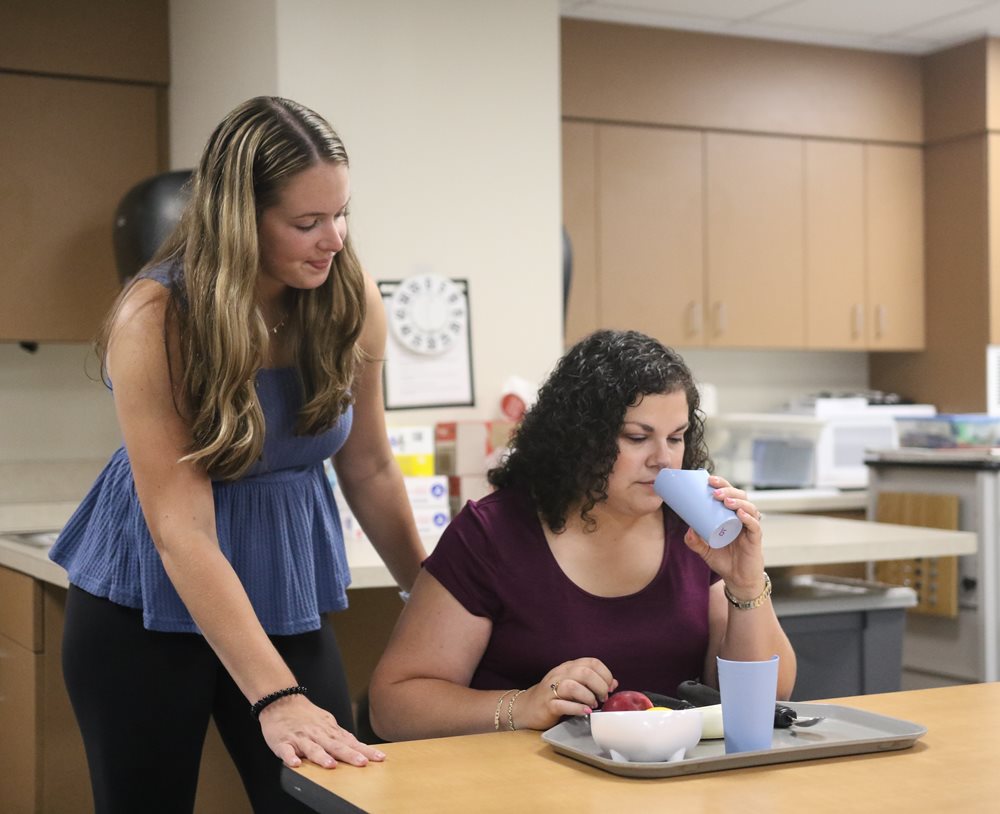Swallowing Problems in Adults
We have all had a drink “go down the wrong pipe” making us cough and choke. Or we may have to swallow hard to get a piece of food down. A person with a swallowing disorder (dysphagia) will have trouble like this a lot.
People who have dysphagia have trouble swallowing solid foods, liquids, or saliva. They may not be able to swallow at all. Swallowing disorders can occur at any age, but they are more common in older adults.
 The Swallowing Process
The Swallowing Process
Swallowing happens in three phases. You can have a problem in one or more of these phases which include:
- Oral phase (mouth) – sucking, chewing, and moving food or liquid into the throat.
- Pharyngeal phase (throat) – starting the swallow and squeezing food down the throat. You need to close off your airway to keep food or liquid out. Food going into the airway can cause coughing and choking.
- Esophageal phase – opening and closing the esophagus (the tube that goes from the back of your throat to your stomach). The esophagus squeezes food down to the stomach. Food can get stuck in the esophagus. You may also throw up a lot if there is a problem with your esophagus or if you have acid reflux (commonly known as indigestion or heartburn).
Signs of Swallowing Disorders
- Pain while swallowing
- Unable to swallow
- Coughing or choking during or after meals
- A wet or gurgled sounding voice during or after eating or drinking
- Feeling like something is stuck in your throat or chest after eating or drinking
- Drooling
- Bringing food back up
- Frequent heartburn
- Having food or stomach acid back up into your throat
- Weight loss

Causes of Swallowing Disorders
- Stroke
- Traumatic brain injury
- Parkinson’s disease
- Multiple sclerosis
- Amyotrophic lateral sclerosis (ALS or Lou Gehrig’s disease)
- Muscular dystrophy
- Cerebral palsy
- Alzheimer’s disease
- GERD (gastroesophageal reflux disease)
- Cancer in your mouth, throat, or esophagus
- Head or neck injuries
- Mouth or neck surgery
- Bad teeth, missing teeth, or improperly fitting dentures
A speech-language pathologist (SLP) from the Speech-Language Institute can closely evaluate someone experiencing symptoms of a swallowing disorder. They may start by asking you about your health, past illnesses, surgeries, and your swallowing problems. The SLP will also look at your teeth, lips, jaws, tongue, and cheeks. They may also check how you swallow different consistencies of liquids and foods. They can do special tests, if needed.
Treatment plans vary depending upon the type and cause of swallowing disorder. The SLP can work with you to improve how you swallow. Depending on the specific type of dysphagia, this might include:
- Changing your diet. This might mean eating softer foods, using thickening liquids or having no liquids at all.
- Changing your position while eating. This might mean eating upright, tilting your head back, or bending your neck forward.
- Practicing special exercises to strengthen your lips and tongue.
- Learning special swallowing techniques.
If you or a loved one has difficulty swallowing, contact the Speech-Language Institute today at 215.780.3150.